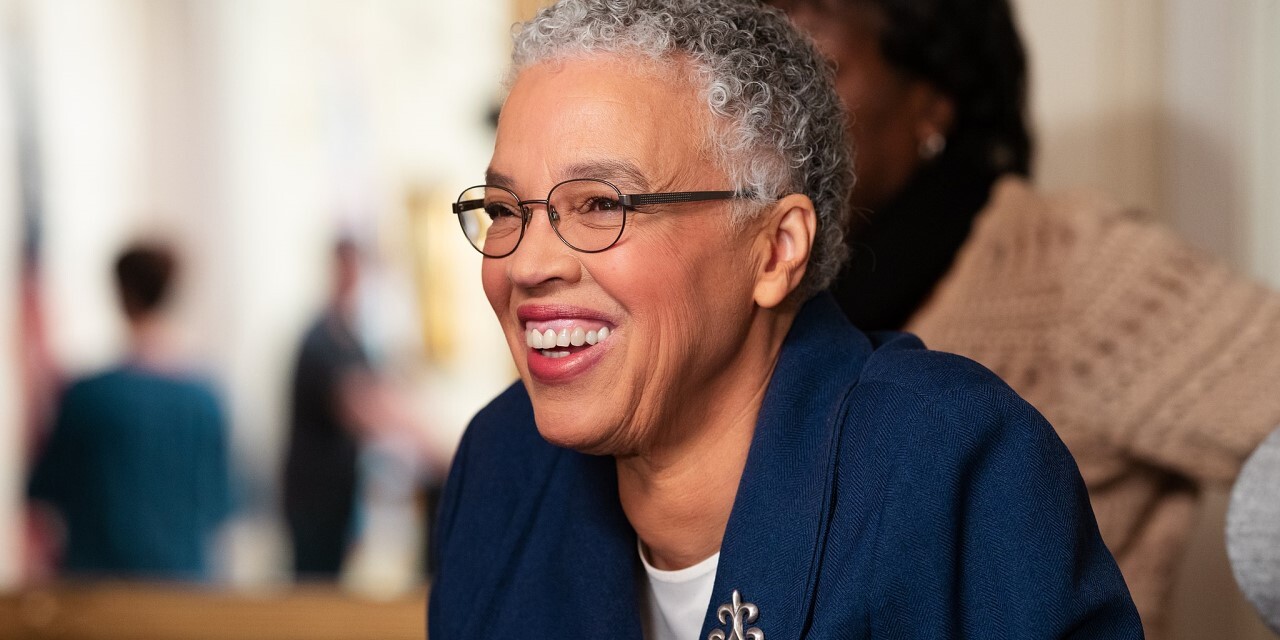Cook County and other local governments in Illinois must use local transportation-related taxes on actual transportation projects, and not regular government operations, the Illinois Supreme Court has ruled, rejecting the county’s arguments that it is exempted from Illinois’ so-called transportation lockbox constitutional amendment.
On Thursday, April 21, the state high court ruled 6-1 in favor of a coalition of road and transportation contractors, with the majority declaring the language of the so-called Safe Roads Amendment applies equally to Cook County and other local government funds, as it does to the state’s transportation money.
The decision overturned prior decisions from a Cook County judge and of a state appeals court, which had ruled in favor of Cook County.

John Fitzgerald
| Tabet DiVito & Rothstein
Justice Rita B. Garman wrote the opinion for the court. She was joined in the decision by Chief Justice Anne M. Burke, and justices P. Scott Neville, David K. Overstreet and Robert L. Carter.
Justice Mary Jane Theis dissented.
“It is the Amendment itself that decides what certain proceeds must be spent on,” Garman wrote in the majority opinion.
She declared the language of the Safe Roads Amendment was “plain and unambiguous,” and said the majority found Cook County’s arguments in support of its attempts to escape the constraints of the amendment to be “unreasonable.”
The Supreme Court particularly rejected Cook County’s attempts to argue its status as a home-rule unit of local government under the state constitution exempts it from the amendment.
“… Though units of local government vary in their respective powers or abilities to generate money from bonds, taxes, fees, excises, or license taxes, the legislature may broaden or limit the reach of such powers or abilities,” Garman wrote.
“However, if the money generated therefrom relates to transportation, then the Amendment - and not the legislature - decides how that money is spent.”
Following the ruling, an attorney for the road builders warned Cook County other units of government in Illinois to not try to avoid the restrictions imposed by the Safe Roads Amendment by attempting to “reconfigure” their budgets, or to argue the amendment somehow still doesn’t apply to their revenues.
“The amendment is very clear that no diversion of transportation revenue is permitted ‘by transfer, offset, or otherwise,’” said attorney John Fitzgerald, of the firm of Tabet DiVito & Rothstein, of Chicago.
“That is sweeping language, and it was designed to pre-empt any effort to evade the amendment through accounting gimmicks. I hope and expect that the response to today’s opinion will be more widespread and consistent compliance with the amendment, not gamesmanship.”
Fitzgerald said he and his road builder clients would be “evaluating compliance” with the Safe Roads Amendment throughout Illinois, and “any unit of government that does not comply with the amendment should expect litigation.”
They accused Cook County of violating the Safe Roads Amendment by continuing to plow nearly $250 million from alleged transportation-related taxes into the county’s Public Safety Fund.
The county uses the Public Safety Fund to help pay for operations at the Cook County Sheriff’s Office and other county offices that work within the criminal justice system.
The Safe Roads Amendment, also known as the transportation lockbox amendment, was added to the state constitution by voters in 2016.
The amendment requires the state and all units of government in Illinois to spend money collected from taxes and fees on transportation solely on transportation work and projects. The road builders argued the amendment should require Cook County and all Illinois local governments to dedicate the funding to roads, bridges, mass transit and other real transportation projects.
However, Cook County and other local governments in Illinois have argued the amendment can’t be read as applying to taxes raised by home rule units of government, like Cook County, which are granted special powers under the Illinois state constitution.
Cook County further asserted the road builders’ interpretation is an unreasonable attempt by transportation construction businesses in Illinois to extract billions of new dollars, while forcing local governments, like Cook County, to cut services and raise taxes elsewhere to make up for resulting budget shortfalls.
The county’s take on the applicability of the Safe Roads Amendment was backed by a Cook County judge and a panel of the Illinois First District Appellate Court.
That decision prompted the road builders to appeal to the Illinois Supreme Court, as they asserted that reasoning contradicted the “plain language” of the amendment.
The two sides faced off before the high court in January.
The county argued following the “plain language” of the amendment would lead to “absurdity,” forcing the county to divert nearly $200 million a year from county operations to a limited number of roadways it is obligated to maintain.
Further, the county argued transcripts from the legislative debate over the Safe Roads Amendment in the Illinois General Assembly indicated lawmakers never intended for such a result.
In her dissent, Justice Theis said the majority improperly ignored those points.
She said the majority oversimplified the question, and failed to consider the matter together with the state constitution’s home rule provisions, and lawmakers’ actual intent.
Theis said that intent was communicated to voters through the ballot summary, which included a statement that the amendment was not intended to “alter home rule powers.”
“… The purpose of our inquiry is to understand the voters’ intent in adopting this amendment,” Theis said. “The answer to that critical question is that voters knew that the adoption of the safe roads amendment would not change their local government’s constitutional authority to address problems with solutions tailored to their local needs.”
Theis said the majority decision “closes its eyes to this evidence,” to reply almost exclusively on the language of the amendment alone.
But in the majority opinion, Garman said courts are not required to rely on anything but the actual language of an amendment or law, so long as the court concludes the plain language is clear.
She said in this case, the “extrinsic sources,” including assertions from lawmakers concerning the amendment’s scope and reach, “do not trump the plain meaning of a provision.”
“Furthermore, we do not defer to the legislative branch for its opinion as to whether certain language is plain or ambiguous,” Garman said.
The decision was hailed by several organizations, including the Illinois Road and Transportation Builders Association, who helped lead the court fight against Cook County.
“The Safe Roads Amendment clearly applies to every unit of government in Illinois – and that’s what voters understood when they overwhelmingly approved it,” said IRTBA President and CEO Mike Sturino in a prepared statement.
“This is a victory for the Illinois economy, Illinois workers, and most importantly for Illinois voters.”
The Illinois Chamber of Commerce also said they were “gratified” by the Supreme Court’s decision. The Chamber had filed an amicus brief in support of the road builders’ position.
They said the decision upheld “the intent of the voters in approving the lockbox amendment to the constitution.”
Plaintiffs in the action include the Illinois Road and Transportation Builders Association; the Federation of Women Contractors; the Illinois Association of Aggregate Producers; Associated General Contractors of Illinois; Illinois Asphalt Pavement Association; Illinois Ready Mixed Concrete Association; Great Lakes Construction Association; American Council of Engineering Companies Illinois Chapter; Chicagoland Associated General Contractors; Underground Contractors Association of Illinois; and Illinois Concrete Pipe Association.
The road builders were represented by Fitzgerald and attorneys Gino DiVito and Amanda Catalano, all of Tabet DiVito & Rothstein.
Cook County was represented by the Cook County State’s Attorney’s office.
